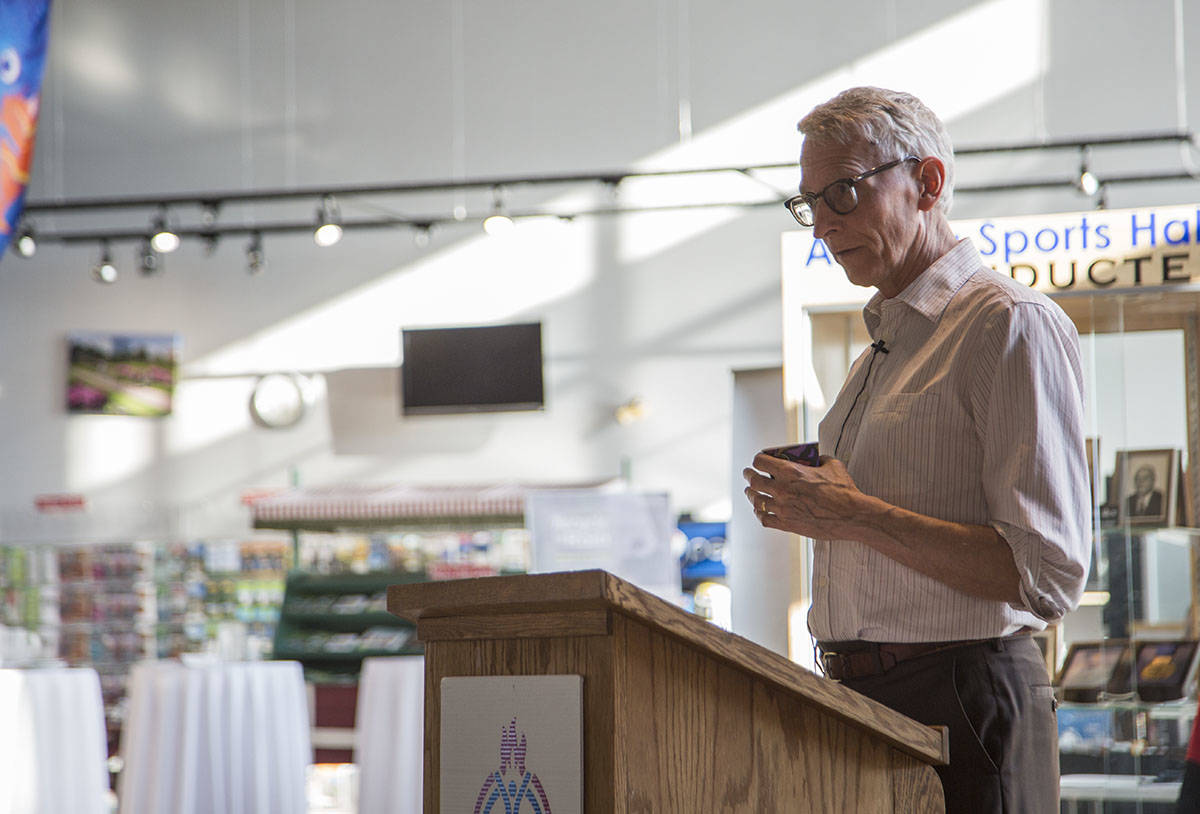James Gordon said he remembers coming home from playing pond hockey as a youngster with toes so cold he cried as they warmed up.
But that never stopped him from heading out the next night to play again.
Winters with several months cold enough to play outdoor hockey are on the decline in Canada because of climate change, he said.
“Outdoor hockey is the canary in the coal mine for climate change,” he told a small audience who attended a spring forum on how climate change is affecting winter sports at the Alberta Sports Hall of Fame Friday.
“It’s a warning of more significant loss to come if we are not careful.”
Gordon, who is the environmental programs and research co-ordinator in the sustainability office at Thompson Rivers University in Kamloops, B.C., said his goal is to use hockey to inspire people to take action against climate change.
As part of his research, he looked at data from over 100 years.
Over the past twenty years, he said there are only four guaranteed months of cold, which means there is a loss of about three or four weeks. Winter starts later and ends sooner, with more fluctuations in temperature, he said.
“It’s a warning of more serious things to come if we’re not careful. Pond hockey and outdoor hockey is just one of those. It is just one more indicator of the issue of climate change that Canadians are faced with.”
In fact, Gordon is not the only one sounding the alarm about climate change and outdoor hockey.
The NHL published a 2018 sustainability report that estimates the average length of the outdoor skating season could decrease by 20 per cent in Western Canada and a third in Eastern Canada in the next decades.
To achieve his goal, Gordon said in 2020 he is starting a non-profit organization called, Shinny Forever, ‘shinny’ being the word used for pond hockey.
With a team, he plans to travel to cities across Canada during the winter months to play outdoor hockey with the hopes of raising awareness and discussing climate change.
Because of Canadians’ love for ice hockey, he said, “It offers a perfect opportunity to use it as a springboard to talk about more and more climate change issues.”
The forum was organized by the Red Deer River Watershed Alliance.
Executive Director Jeff Hanger said with Red Deer hosting the Canada Winter Games last month, it was a good opportunity to learn about how climate change might impact some of those winter sports.
“Climate change is one of the things that is going to have a big impact on our watershed like drought and increase in temperatures and a reduced amount of water in some areas,’” he said.
“We wanted to make sure we used this opportunity to bring some of those ideas together and discuss how it’s related to our watershed.”
The forum also featured a talk by David Sauchyn, director of the Prairie Adaptation Research Collaborative at the University of Regina.
His research is focused on climate variability and its impacts on natural resources of the Western prairies. He talked about the Red Deer River.



